May 24, 2025 | 16:22 GMT +7
May 24, 2025 | 16:22 GMT +7
Hotline: 0913.378.918
May 24, 2025 | 16:22 GMT +7
Hotline: 0913.378.918
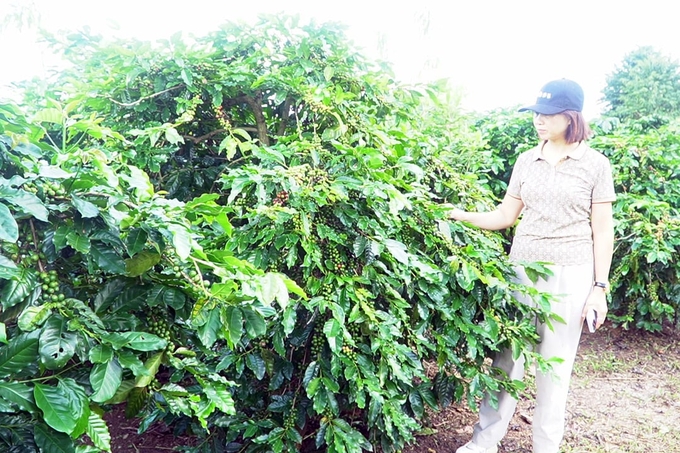
Many coffee gardens in Huong Hoa have been converted to organic farming. Photo: Vo Dung.
One day in early October 2023, Mrs. Nguyen Thi Van Anh, CEO of Chamlife Group Trading Joint Stock Company headquartered in Hanoi, went to Huong Phung commune, Huong Hoa district (Quang Tri) to survey the coffee growing area here.
Mrs. Anh said that every year, the Company exports 500 tons of green coffee beans to the markets of Australia, Singapore, and Indonesia. Chamlife Group's partners are demanding customers with increasingly high demands for Vietnamese coffee products. They are looking to source organic coffee products in large quantities.
"We really want to find a source of goods that meets the needs of our partners. Coffee customers, especially exported coffee, attach great importance to product quality and origin. I hope Huong Hoa coffee growers will gradually switch to organic farming methods so businesses have a stable supply. This is also the premise for Huong Hoa coffee products to expand their export routes and increase their value," Mrs. Anh hoped.
Faced with the needs of businesses, many coffee-growing households in Huong Hoa have also changed their farming direction in the past few years. Many local cooperatives and enterprises are also accompanying coffee growers.
Mr. Nguyen Duy Phuong, a member of Bon Phuong Ecological Agriculture Cooperative in Huong Phung commune, said that his family currently has 2 hectares of coffee grown organically. Previously, also in this area, arabica coffee trees were cultivated using traditional methods, chemical fertilizers, and pesticides; although they had high yields in the early stages, but quickly degenerated. After accessing information from training programs, Mr. Phuong switched to organic coffee growing, combining durian intercropping as shade.
"We treat coffee husks with Trichoderma fungus for composting. When the tree is infected, it is sprayed with antagonistic biological products made from soapberry, chili, garlic, ginger... In general, the coffee tree grows and develops well. The coffee garden is nearly 3 years old. My family has started fortune-telling," said Mr. Phuong excitedly.
Also, according to Mr. Phuong, people are now aware of the benefits of organic coffee, which is safe for both growers and users. The market is stable, and the selling price is higher than usual farming methods. Many households have abandoned old farming practices and switched to growing organic coffee.
“Currently, Four Directions Ecological Agriculture Cooperative has linked up with 50 households growing over 70 hectares of organic coffee. The cooperative is committed to purchasing all products for farmers at prices higher than the market, so organic coffee growers are very excited," Mr. Phuong added.
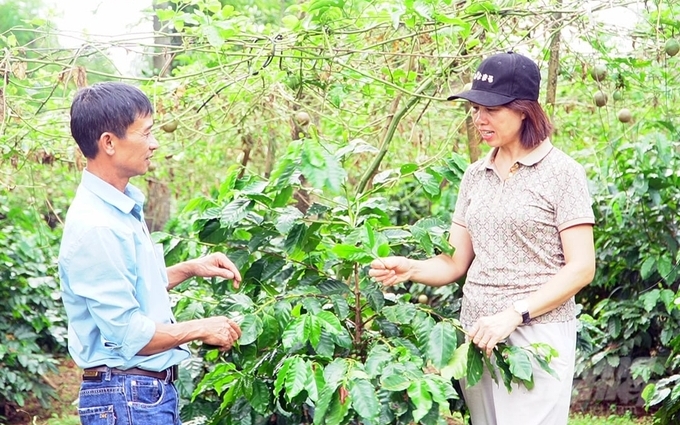
Businesses are in dire need of a supply of organic coffee ingredients for processing and export. Photo: Vo Dung.
In Huong Hoa district, Ta Lu Khe Sanh Coffee Co., Ltd. is collaborating to grow 100 hectares of high-quality coffee with more than 50 households. According to Mrs. Nong Thi Hanh, Director of the Company, to enhance the value of the coffee industry, aiming for export with large output, there must be a standard organic material area.
However, the difficulty when switching to growing organic coffee is that the thinking of some coffee farmers has not kept pace with market demand. Besides, businesses and people currently lack access to this farming method.
"We hope there are agencies and organizations that can support farmers here to organize production in an organic and sustainable direction to have a stable source of goods," Mrs. Hanh shared.
Mrs. Nguyen Hong Phuong, Deputy Director of the Department of Agriculture and Rural Development of Quang Tri, said the province currently has over 3.7 thousand hectares of coffee, concentrated mainly in Huong Hoa district, including 145 hectares of high-quality coffee. However, this locality only has about 5 hectares to convert to organic coffee. According to the plan, by 2030, Quang Tri aims to have 500 hectares of organic coffee and 150 hectares of high-quality specialty coffee.
For coffee products to meet standards and be worthy of the title "high quality," in addition to harvesting 100% ripeness and processing, they must comply with technical procedures... the production and care of plants in the garden must be the deciding factor for the entire crop yields nearly 4 tons of kernels/hectare. When the source of chemical fertilizers and pesticides is cut off, the plant suddenly declines, and productivity is seriously affected.
Organic coffee is coffee produced without the aid of artificial chemical substances, such as certain additives or some pesticides and herbicides.
Many factors are taken into consideration when coffee is considered for organic certification. For example, the coffee farm's fertilizer must be 100% organic. Some organic fertilizer options include chicken manure, coffee pulp, bocachi and general compost. If inorganic fertilizers such as synthetic nitrogen, phosphate, and potash are used, then the crop grown cannot be certified organic.
Translated by Tuan Huy
/2025/05/22/5250-1-184853_288.jpg)
(VAN) According to a representative from the Central Retail Vietnam, Vietnamese products such as seafood, sweet potatoes, dragon fruit, coffee, and spices hold great potential in the Thai market.
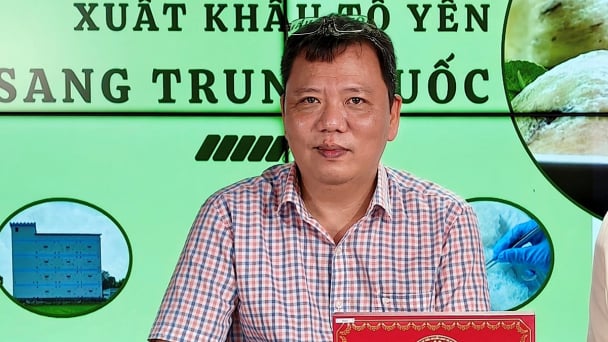
(VAN) A multi-channel, multi-directional strategy only works when the agricultural value chain meets global transparency and SPS standards.
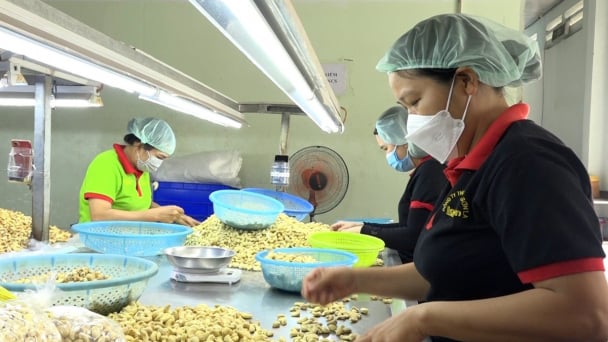
(VAN) Market expansion is a matter of survival for Vietnamese businesses amid fierce competition and global supply chain fluctuations.
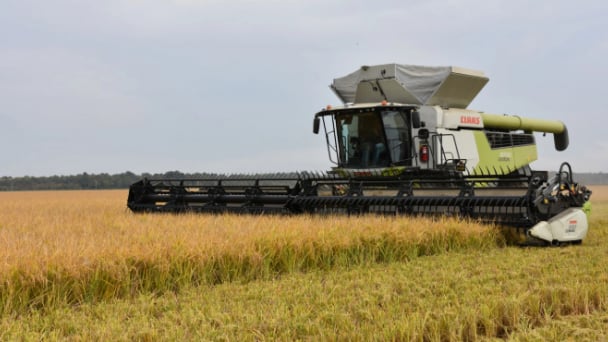
(VAN) Global market prospects for U.S. long-grain rice for the upcoming marketing year.
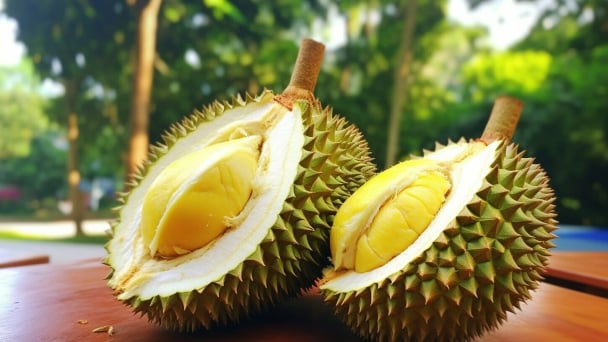
(VAN) China’s General Administration of Customs started permitting fresh durian shipments from Cambodia after a phytosanitary protocol was signed with the Cambodian Ministry of Agriculture in late April.
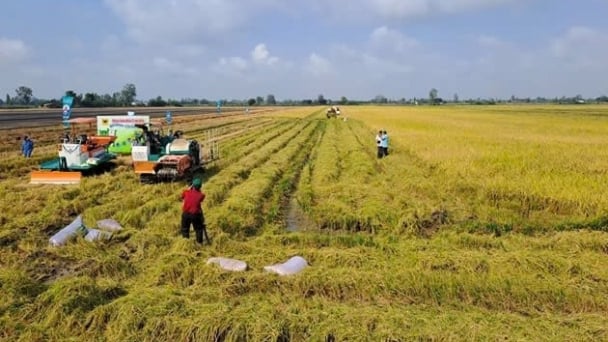
(VAN) To operate carbon market, one of the key issues is determining which types of 'commodities' meet the standards to be traded on the market.
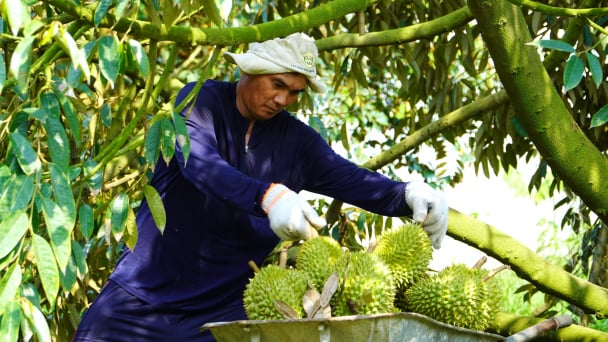
(VAN) Durian-producing localities need to coordinate more effectively with central authorities to improve the traceability, monitoring, and response systems in case of violations.